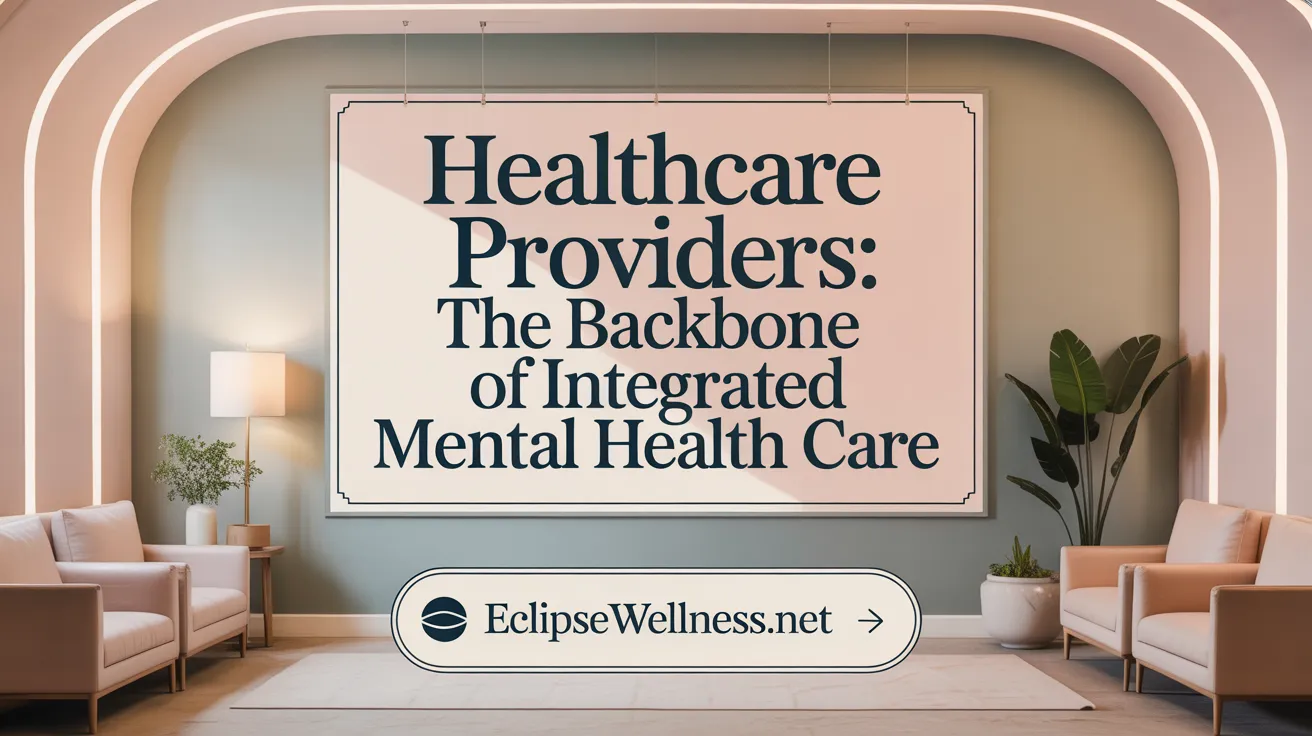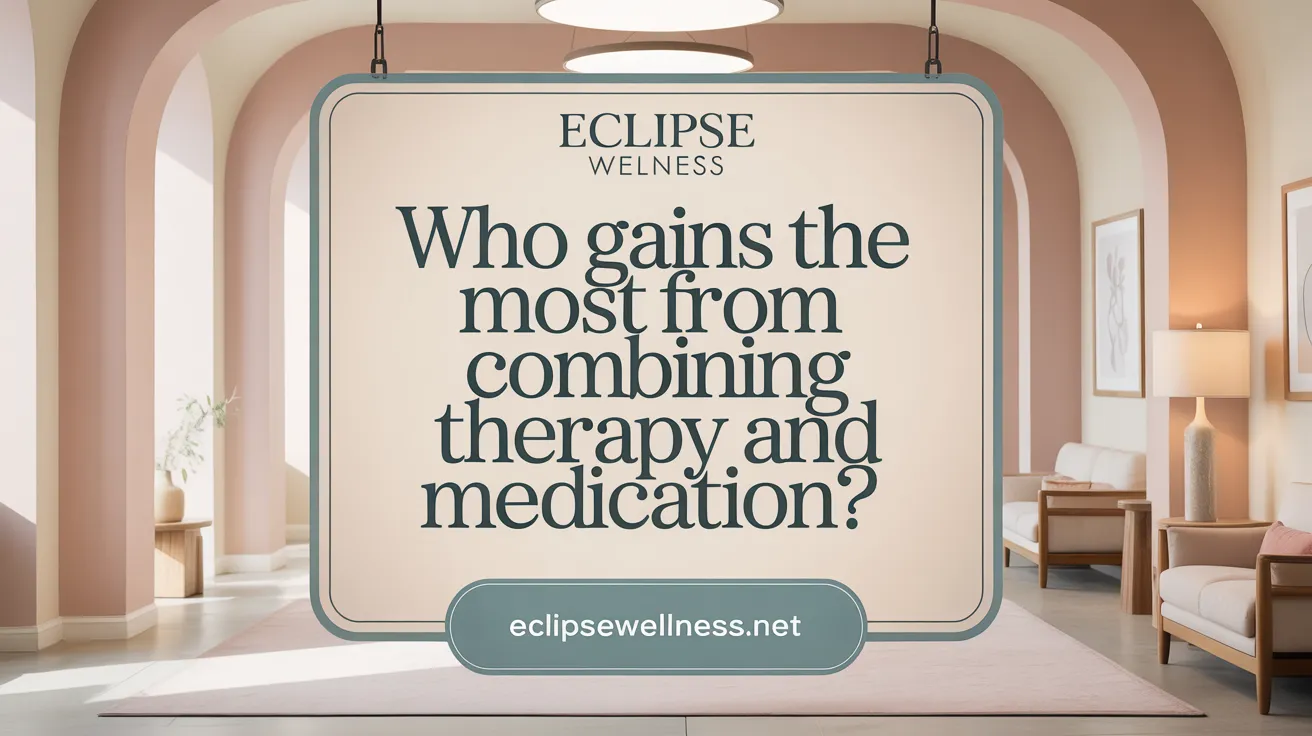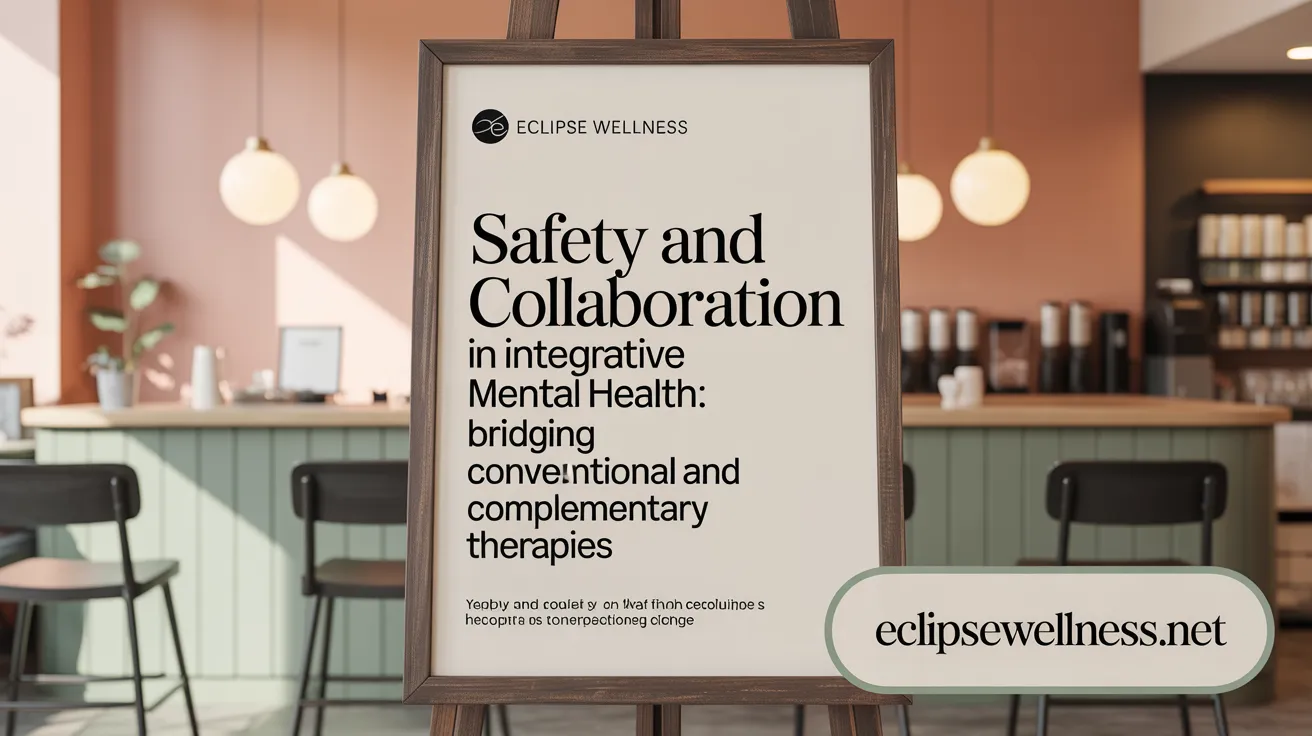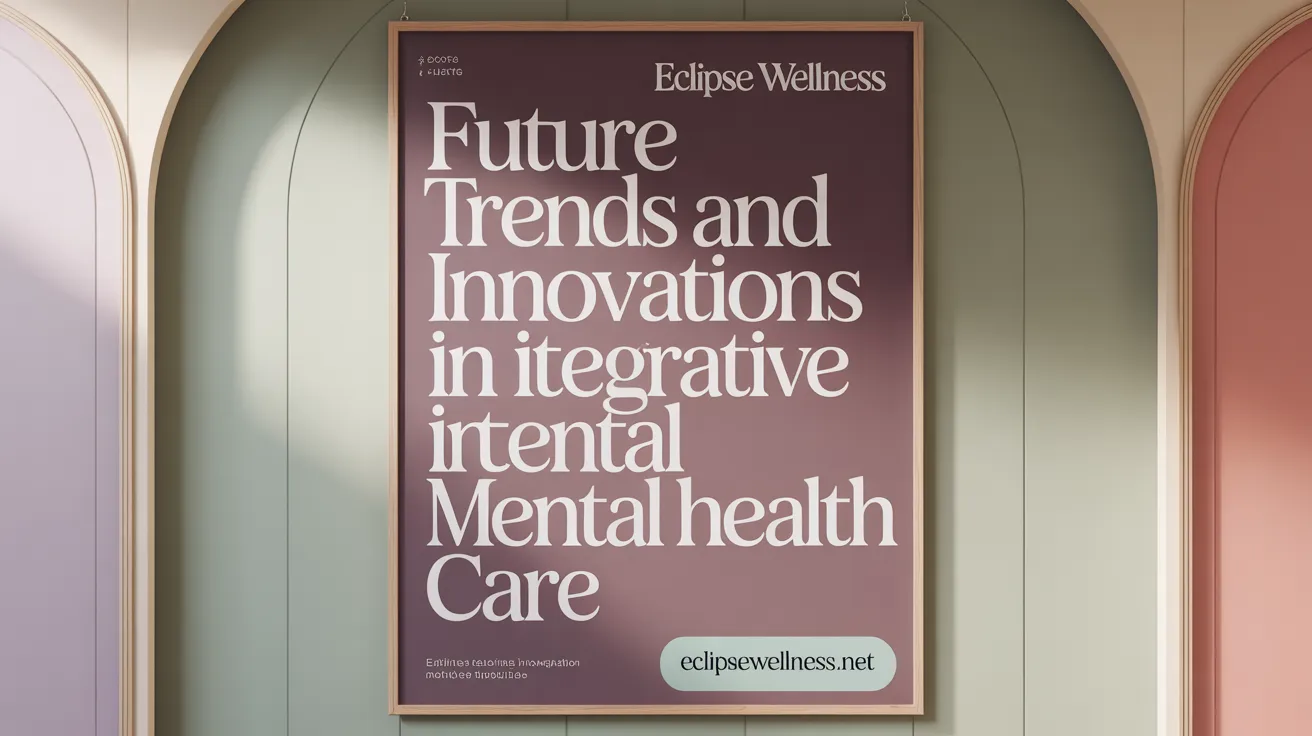Why Integrate Therapy and Medication in Mental Health?
Mental health care is evolving beyond traditional boundaries by embracing integrative approaches that combine medication and therapy. This comprehensive strategy aims to address the complex interplay between biological, psychological, and social factors influencing mental well-being. By blending pharmacological treatment with psychotherapy and complementary modalities, integrative care seeks to optimize outcomes, reduce side effects, and support whole-person healing for individuals facing diverse mental health challenges.
Understanding Integrative Mental Health Care: A Holistic and Personalized Approach
What is integrative mental health care involving therapy and medication?
Integrative mental health care is a comprehensive approach that combines traditional treatments such as psychotherapy and medications with various complementary and alternative therapies. These may include nutraceuticals, lifestyle modifications like diet and exercise, mindfulness practices, acupuncture, and nutritional supplementation. The central idea is to treat the whole person—mind, body, and social aspects—by creating personalized treatment plans that fit individual needs.
This model involves collaboration among healthcare providers from different disciplines, promoting systematic communication and patient-centered decision-making. It emphasizes shared goals and active involvement of patients in their care, fostering a partnership that supports healing at multiple levels.
Guided by evidence-based practices, integrative care ensures each intervention’s safety and efficacy. It respects patient preferences while integrating therapies proven effective through research, aiming to improve overall well-being. The focus is on tailoring interventions to optimize mental health and physical health outcomes, recognizing the complex, interconnected nature of mental health conditions.
Overall, this approach endeavors to enhance treatment response, reduce adverse effects, and promote sustainable recovery by addressing all facets of health through a flexible, multidimensional framework.
Models and Approaches in Integrative Mental Health Treatment

What are the common models and approaches used in integrative mental health treatment?
Integrative mental health treatment primarily utilizes models such as collaborative care, coordinated care, and stepped care systems. These approaches are designed to provide comprehensive, team-based, and holistic support to patients.
The collaborative care model involves a multidisciplinary team—including psychiatrists, primary care providers, psychologists, social workers, and other specialists—working together to develop and manage personalized treatment plans. This system emphasizes continuous communication, shared decision-making, and coordinated interventions.
Stepped care models focus on providing the least intensive yet effective treatments initially, escalating to more intensive interventions as necessary. This approach ensures patients receive tailored care that adapts to their evolving needs, optimizing resource use and outcomes.
A core feature of these models is the integration of conventional therapies like psychotherapy and pharmacological treatments with evidence-based complementary therapies. These adjuncts include mindfulness practices, yoga, neurofeedback, lifestyle modifications such as diet and exercise, sleep hygiene, nutraceuticals, and mind-body practices.
Addressing root causes goes beyond symptoms, considering factors such as microbiome health, trauma history, social determinants like socioeconomic status, housing stability, and social support networks. This comprehensive approach aims to target underlying issues that contribute to mental health disorders.
Personalized, patient-centered care plans are central, utilizing ongoing research and clinical evidence to tailor interventions to individual needs and preferences. These plans often involve collaboration among various healthcare professionals, ensuring a cohesive, multifaceted approach.
In summary, these integrative models combine conventional and complementary treatments through multidisciplinary teamwork, fostering treatment strategies that are holistic, personalized, and evidence-informed. This approach aims to improve mental and physical health outcomes, reduce side effects, and better address the complex needs of patients with mental health conditions.
Evidence Supporting the Combination of Therapy and Medication
What evidence supports the effectiveness of combining therapy and medication in mental health treatment?
Research from large-scale clinical trials and comprehensive meta-analyses shows that combining psychological therapies with pharmacological treatments often leads to better outcomes than either approach alone. These studies have consistently demonstrated that patients who receive both interventions tend to experience faster symptom relief, higher rates of remission, and fewer relapses, particularly in severe or recurrent mental health conditions like depression, bipolar disorder, and obsessive-compulsive disorder (OCD).
For example, randomized controlled trials comparing combined treatment to monotherapy have found small but meaningful advantages. Patients receiving both therapies commonly report quicker improvements and lasting benefits that reduce the risk of recurrence. Psychological approaches such as cognitive-behavioral therapy (CBT), interpersonal therapy (IPT), and psychodynamic therapy, when used alongside medication, act on different parts of the brain and behavioral systems.
This synergy enhances overall treatment efficacy, addressing both biological and psychological factors of mental illness. Clinical guidelines now endorse this dual approach for specific disorders, citing evidence from numerous high-quality studies supporting its use.
Moreover, emerging research explores the role of biomarkers and neuromodulation techniques, which could enable personalized combination treatments. These advances aim to optimize therapy by identifying which patients are most likely to benefit from specific intervention pairs, further improving outcomes.
In summary, the accumulated scientific evidence strongly supports that integrating therapy with medication provides a more effective, faster, and durable path to recovery for many individuals with mental health conditions.
The Critical Role of Healthcare Providers in Integrated Mental Health Care
 Healthcare providers are essential to the success of integrated mental health care, acting as coordinators and overseers within multidisciplinary teams that include psychiatrists, psychologists, primary care physicians, nurses, and social workers.
Healthcare providers are essential to the success of integrated mental health care, acting as coordinators and overseers within multidisciplinary teams that include psychiatrists, psychologists, primary care physicians, nurses, and social workers.
They take charge of systematic screening processes, utilizing validated assessment tools to identify mental health conditions early, especially in individuals with physical comorbidities such as cardiovascular disease or diabetes. Ongoing monitoring enables providers to track patient progress, making necessary adjustments to treatment plans to enhance efficacy and safety.
Modern digital tools and health information technology (IT) systems significantly enhance communication, data sharing, and care coordination among team members. Electronic health records (EHRs) facilitate real-time updates, while telehealth platforms expand access and allow for remote management of care, which is vital for continuity in mental health support.
Providers also play a crucial educational role, informing patients about the benefits and risks of complementary therapies and natural products like vitamins, probiotics, and herbal supplements. Educating patients helps mitigate safety concerns, prevent adverse interactions, and foster collaborative decision-making.
Implementing models such as the Collaborative Care Model (CoCM) and Primary Care Behavioral Health (PCBH) is fundamental. These frameworks promote integrated, patient-centered approaches by defining clear roles for each team member, streamlining referrals, and emphasizing the importance of comprehensive care. For example, in CoCM, psychiatrists offer consultative support for medication management, while primary care providers handle routine health issues.
Overall, healthcare providers serve as the backbone of integrated mental health initiatives. They ensure that care is holistic, coordinated, and tailored to individual needs, ultimately improving clinical outcomes, reducing stigma, and making mental health treatment more accessible within general healthcare settings.
| Aspect | Role | Tools & Examples |
|---|---|---|
| Team Coordination | Manage multidisciplinary teams | Psychiatrists, psychologists, primary care providers, social workers |
| Screening & Monitoring | Conduct systematic assessments | Validated questionnaires, EHRs, follow-up protocols |
| Use of Digital Tools | Enhance communication & care delivery | Telehealth platforms, patient portals, health apps |
| Provider Education | Ensure safety & promote effective therapies | Continuing education, guidelines on natural products |
| Implementation Models | Facilitate integrated care | Collaborative Care Model (CoCM), Primary Care Behavioral Health (PCBH) |
By incorporating these strategies, healthcare providers ensure comprehensive, safe, and accessible mental health services that address the complex needs of patients with co-occurring physical and mental health conditions.
Who Benefits Most from Combining Therapy and Medication?

Who is most likely to benefit from a combined therapeutic and pharmaceutical approach in mental health care?
Patients with moderate to severe mental health disorders are prime candidates for integrated treatments involving both medication and psychotherapy. Research consistently demonstrates that this combined approach results in higher response and remission rates, quicker symptom relief, and a lower chance of relapse.
Individuals with treatment-resistant, recurrent, or complex conditions—such as major depressive disorder, bipolar disorder, and obsessive-compulsive disorder (OCD)—are especially suited to tailored combination treatments. These cases often require addressing both the biological underpinnings and psychological aspects of illness for optimal outcomes.
The additive effect of combining pharmacological and psychotherapeutic strategies also enhances adherence to treatment, reduces hospitalizations, and promotes sustained recovery. For example, medications like antidepressants or mood stabilizers help stabilize brain chemistry, making patients more receptive to psychotherapy, while therapy supports emotional processing and coping skills.
Guidelines stress that sequential addition of therapies—especially after initial nonresponse—can significantly improve long-term stability. This stepwise approach ensures that treatment is personalized, addressing the unique needs of each patient.
In summary, individuals with complex, persistent, or severe mental health conditions stand to benefit the most from an integrated treatment plan. This holistic approach maximizes the chances of recovery and supports ongoing mental well-being.
Bridging Conventional and Complementary Therapies: Safety and Collaboration

Use of natural products and supplements alongside medications
Many patients with mental health conditions turn to natural products such as vitamins, probiotics, and herbs as complementary approaches. Studies show that around 17.7% of people used such supplements in 2012. These natural therapies are popular due to perceptions of being safer or more holistic options.
Risks of undisclosed complementary therapy use and herb-drug interactions
However, patients often do not inform healthcare providers about their use of these supplements. Unreported use poses risks, including herb-drug interactions that may diminish medication effectiveness or cause adverse side effects. For example, certain herbal supplements can interfere with antidepressants or antipsychotics.
Psychiatrists' roles in reviewing and managing integrative treatments
Psychiatrists and psychiatric providers play a critical role in reviewing all natural product use. They need to understand the evidence, evaluate safety, and guide appropriate use or discontinuation. A case example involves an 84-year-old woman on conventional medications who used multiple supplements; her psychiatrist reviewed each supplement's efficacy, safety, and possible interactions, ultimately improving her treatment.
Importance of evidence-based frameworks for integrating natural therapies
Effective integration depends on structured, evidence-based frameworks. These involve assessing the efficacy, safety, and dosage of supplements relative to individual patient needs. This approach ensures natural therapies support health without jeopardizing safety.
Examples of safe adjunctive therapies with minimal side effects supporting mental and physical health
Many complementary therapies like yoga, mindfulness, and nutritional interventions are considered safe with minimal risks when coordinated with standard treatment. These therapies can boost overall well-being without significant side effects, making them effective adjuncts.
| Aspect | Description | Additional Notes |
|---|---|---|
| Natural products used | Vitamins, probiotics, herbs | Widely popular, often unreported |
| Risks | Herb-drug interactions, mismanagement | Can affect medication efficacy |
| Role of psychiatrists | Review, advise, monitor supplements | Essential for safe integrative care |
| Safe therapies | Yoga, mindfulness, dietary changes | Minimal side effects, evidence-supported |
In summary, combining natural products with conventional treatment requires careful, informed collaboration among clinicians and patients. When guided by robust evidence and open communication, integrative approaches can enhance mental and physical health outcomes safely.
Future Directions and Evolving Trends in Integrative Mental Health Care

Advances in personalized, data-driven treatment planning including pharmacogenetics
The future of integrative mental health care increasingly relies on personalized approaches. Pharmacogenetics, which studies how genetic differences affect individual responses to medications, allows clinicians to tailor treatments. This precision medicine approach can optimize medication efficacy, reduce adverse effects, and improve overall outcomes. By integrating genetic testing into routine care, providers can better match patients with the right medication at the right dose, ultimately fostering more effective and safe treatments.
Expansion of integrative psychiatry inpatient programs and observational studies
Recent research supports expanding inpatient programs that combine conventional treatments with complementary therapies. Observational studies comparing traditional care to integrative psychiatry show promising results—reduced symptom severity, enhanced recovery, and higher patient satisfaction. As evidence accumulates, hospitals and psychiatric units are adopting these models more widely, providing holistic care that addresses biological, psychological, and social factors.
Increasing adoption of integrated behavioral health models across diverse populations and settings
Integrated behavioral health models like the Primary Care Behavioral Health (PCBH) and Collaborative Care Model (CoCM) are becoming mainstream in diverse settings such as Federally Qualified Health Centers, Veterans Affairs hospitals, and community clinics. Their flexibility allows adaptation to various populations, including underserved and marginalized groups. These models improve access, reduce disparities, and promote early intervention, ensuring that mental health care is more inclusive and effective across different cultural and socioeconomic backgrounds.
Combination of medication, psychotherapy, and technology-enhanced interventions
The integration of multiple treatment modalities—medications, psychotherapy, and digital health technologies—is set to revolutionize mental health care. Telepsychiatry, mobile health apps, and virtual therapy platforms facilitate continuous engagement and monitoring outside traditional settings. These tools enhance adherence, support personalized interventions, and extend care to remote or underserved areas, making treatment more accessible and flexible.
Potential to improve long-term recovery, patient satisfaction, and healthcare sustainability
By combining personalized medicine, evidence-based therapies, and innovative delivery methods, future care models aim to improve long-term recovery and sustainability. Patients experience greater satisfaction through collaborative, holistic approaches that respect individual needs. Healthcare systems benefit from reduced emergency visits, hospitalizations, and resource wastage, leading to more sustainable, efficient care. Overall, these advancements promise a future where mental health treatment is more precise, accessible, and patient-centered.
The Promise and Path Forward for Integrative Mental Health Care
The integration of therapy and medication represents a transformative approach in mental health care, offering comprehensive, tailored treatment plans that address the multifaceted nature of mental illness. Supported by strong evidence and evolving models, this approach improves patient outcomes by combining biological and psychological interventions within collaborative, patient-centered frameworks. Healthcare providers are essential in coordinating safe, effective integrative therapies while managing complex interactions and individual needs. As research and technology continue to advance, integrative mental health care is poised to become the standard for treating mental health disorders—delivering stronger symptom relief, enhancing recovery rates, and ultimately promoting holistic well-being for diverse patient populations.
References
- An integrative collaborative care model for people with ...
- Complementary and Integrative Therapies in Psychiatry
- Integrative Medicine: What Is It, Types, Risks & Benefits
- Balancing Therapy Medication | Carelon Behavioral Health
- Comparing psychiatric routine care and integrative psychiatry
- Combining Medication & Therapy: Enhancing Your Mental ...
- How Counseling and Medication Management Work Together
- Behavioral Health Integration Fact Sheet
